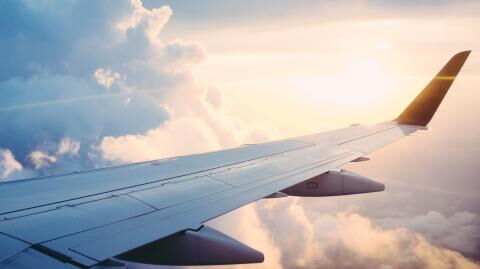From the 19th of July, Brits who have had both of their COVID jabs will be able to skip the 10-day self-isolation when returning from amber-listed countries.
Discover our latest podcast
Under the new rules, those returning from amber-list destinations will still have to undergo a PCR test three days before and two days after returning, but not on day eight. Children under 18 and those involved in clinical COVID trials will also not have to self-isolate.
However, Brits who haven’t had both vaccines will still need to abide by the current rules and self-isolate for at least ten days and produce three COVID tests.
To coincide with the new soon-to-be-active travel regulations, the government has also dropped the advice indicating Brits should not travel to amber-list countries.
The news sparked many hopes of sunny European getaways, but many destinations will still require Britons to quarantine upon arrival...If they even let us in at all.
Which green-list countries can Brits travel to?
Green-list spots don’t require any quarantine upon return and are deemed the safest destinations for coronavirus risk.
Green-list countries that are open to Brits include:
- Anguilla
- Antigua and Barbuda
- Barbados
- Bermuda
- British Antarctic Territory
- British Indian Ocean Territory
- The British Virgin Islands
- Brunei
- Cayman Islands
- Dominica
- Falkland Islands
- Faroe Islands
- Grenada
- Israel and Jerusalem
- Montserrat
- Pitcairn, Henderson, Ducie and Oeno Islands
- South Georgia and the South Sandwich Islands
- St Helena, Ascension and Tristan da Cunha
- Turks and Caicos Islands
The Balearic Islands and Gibraltar are also open to UK residents provided they provide negative coronavirus tests upon arrival and at the required time frames.
Iceland and Madeira will also accept UK tourists. However, those wishing to enter the countries will need to provide proof of vaccination at least 15 days before travel or an antibody test indicating the traveller has recovered from the virus and has a level of immunity.
On the other hand, Malta will only accept fully vaccinated travellers who completed their jabs 14 days before entry.
Green-list countries that UK residents are unlikely to gain entry to are Australia, New Zealand and Singapore, which only allow access to residents and citizens.
What amber-list countries can Brits travel to?
Most of the UK’s favourite holiday spots have been placed on the amber list.But with advice to stay home coming to an end, many Brits will be itching to go on their once, twice, three times delayed vacations.
Here are the amber-list countries most likely to accept British tourists:
- Croatia
- Cyprus
- France
- Greece
- Mexico
- Spain
These destinations are all open to UK travellers but will require at least a negative COVID test before arrival or proof of vaccination. Some destinations may also require travellers to undertake tests at the airport or some days after their arrival or even sign a health declaration.
Mainland Portugal and Saudi Arabia will also accept British tourists. However, those who aren’t fully vaccinated will need to quarantine for at least 14 days upon their arrival.
The Bahamas is also open to British holidaymakers, provided they are fully vaccinated or can offer a negative COVID test taken within five days before arrival. However, to enter, travellers will also need a special health visa and specific health insurance. They will also need to undergo an antigen test and complete daily health questionnaires.
To enter Italy, Brits will need to provide a negative PCR or antigen test taken within 48 hours before arrival. Still, they will also need to self-isolate for five days and then test negative again to be released.
Countries such as Belgium, Canada, China, Indonesia, Thailand and the United States have all closed their borders to UK travellers, or flights have been suspended from the UK. Sadly, this means there won’t be any exciting trips to Bali for 2021















